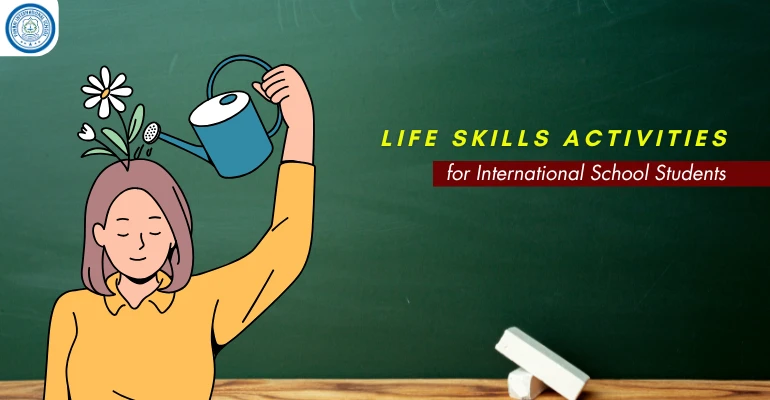Life Skills Activities for International School Students
May 2, 2025 2025-05-02 12:35Life Skills Activities for International School Students
In today’s competitive, fast-paced, and multicultural world, education must go beyond academics. Modern schools are now realizing the importance of equipping students with practical skills that help them adapt, communicate, and succeed in real-life situations. This is where life skills activities come into play.
Life skills are the essential abilities that allow students to handle the challenges of everyday life effectively. For students in international schools—who are often exposed to diverse cultures, global learning environments, and modern technologies, these skills are crucial for both personal and academic success.
Through life skills activities, learners develop emotional intelligence, problem-solving ability, decision-making power, and strong interpersonal skills.
What Are Life Skills Activities?
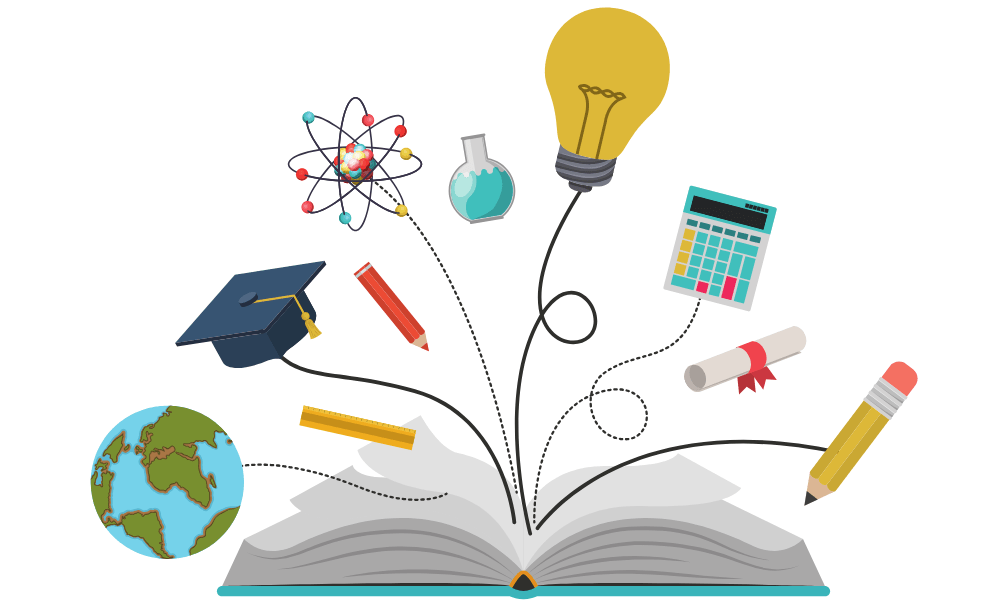

Life skills activities are structured, experiential learning tasks designed to teach practical skills that promote independence, responsibility, and positive social behavior. These are not just extracurricular or optional sessions—they are essential parts of holistic education.
Unlike textbook-based learning, these activities engage students in hands-on experiences, real-life simulations, and group challenges. The aim is to help them master fundamental capabilities such as time management, teamwork, leadership, self-discipline, and communication.
Why Are Life Skills Activities Important in International Schools?
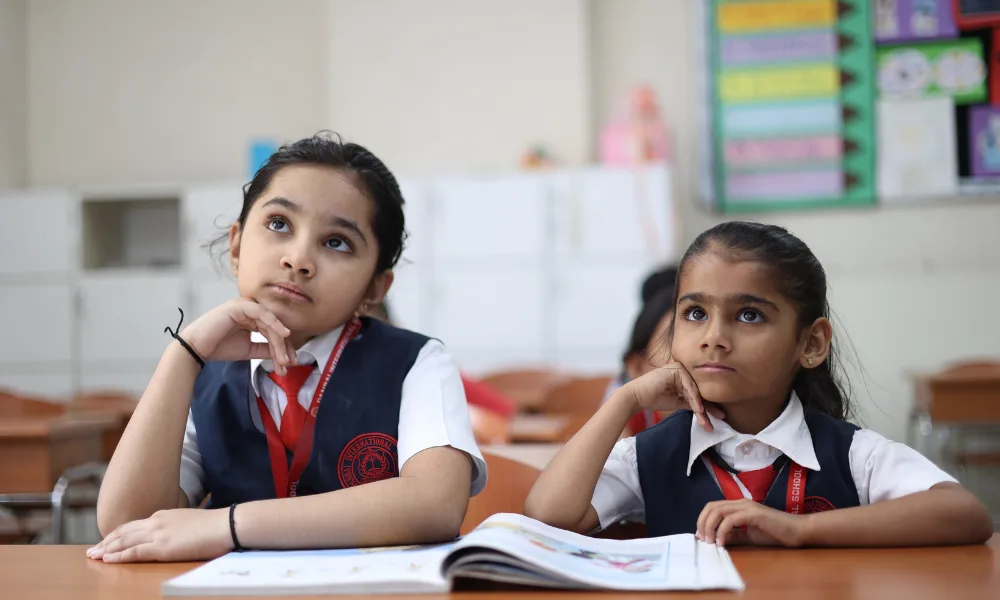

International schools offer a unique platform where students from different countries and cultures come together. In such diverse settings, soft skills and adaptive behavior become as important as academic grades. Life skills activities ensure that students can thrive socially, emotionally, and mentally.
International schools that adopt life skills learning methods are creating a new generation of globally aware, independent, and confident learners. That’s why top institutions like Best International Schools in Mumbai prioritize life skills education through various classroom and beyond-the-classroom initiatives.
Core Areas Covered by Life Skills Activities:
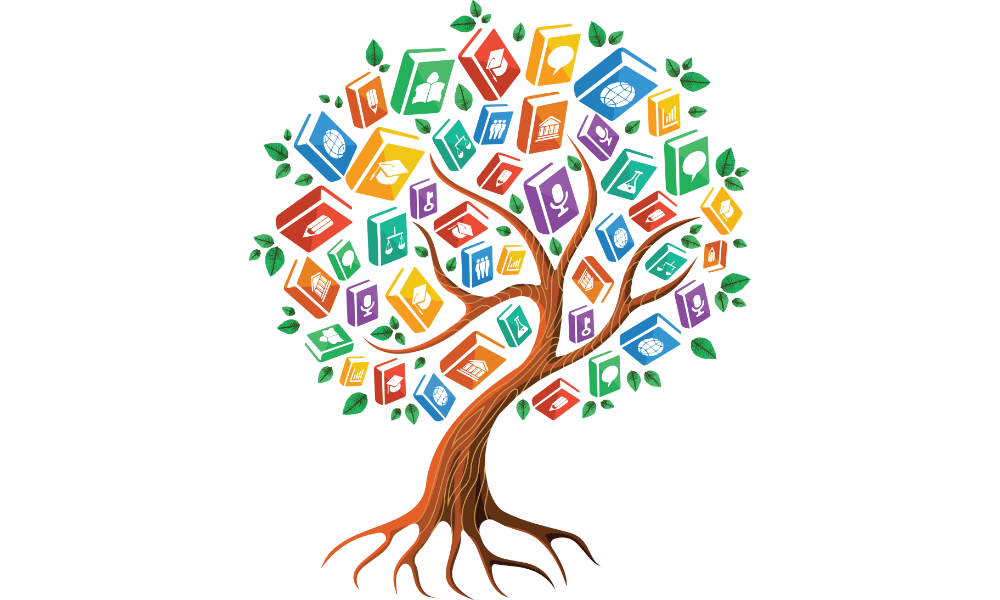

Life skills education typically focuses on three main domains:
1. Personal and Emotional Skills
These are essential for self-awareness and emotional regulation.
- Self-discipline and self-motivation tasks
- Journaling and reflection exercises
- Mindfulness and breathing techniques
- Emotion-based role plays and group discussions
2. Social and Interpersonal Skills
Students must learn how to build relationships, resolve conflicts, and collaborate effectively.
- Team-building games and cooperative projects
- Peer mentoring and leadership exercises
- Active listening and assertive communication activities
3. Cognitive and Thinking Skills
These include analytical thinking, creative problem-solving, and decision-making.
- Debates and group presentations
- Critical thinking puzzles or simulations
- Case study discussions or ethical dilemma solving
Popular Life Skills Activities for International School Students:


Let’s explore some engaging and practical life skills activities that are widely used in international schools today:
Problem-Solving Challenges
Students are divided into teams and asked to solve real-life problems (e.g., how to design a sustainable school lunch menu). This activity boosts collaboration, critical thinking, and decision-making.
Role-Playing Real-Life Scenarios
Students act out roles like interviewing for a job, resolving peer conflict, or asking for help. This helps them build empathy, public speaking skills, and self-confidence.
Budget Planning Simulations
Give students a fixed budget and ask them to plan a trip, event, or monthly expenses. It teaches financial literacy and goal-oriented thinking.
Community Service Projects
These projects engage students in local or global causes. It strengthens their sense of social responsibility, leadership, and empathy.
Digital Etiquette Workshops
In the tech-savvy environment of international schools, it’s crucial to teach students how to behave responsibly online. Activities include simulations, discussions, and scenario-based quizzes.
How Life Skills Activities Support Academic Learning ?


It’s important to understand that life skills activities do not work in isolation. They support and enhance academic learning by teaching students how to manage time, organize tasks, handle stress, and express themselves effectively.
When a student knows how to plan ahead or stay calm under pressure, their academic performance improves naturally.
For example, a student who has participated in peer collaboration activities may perform better in group science projects or presentations. Similarly, one who has learned mindfulness may handle exam anxiety better than others.
Implementing Life Skills Education in International School Curricula:
Modern international schools have started integrating life skills activities into their core academic schedules instead of treating them as extra sessions.
Some schools have dedicated life skills periods or project-based learning (PBL) modules. Others embed it within subjects like social studies, literature, and ICT.
Here are some effective implementation models:
- Weekly life skills sessions for grades 3 and above
- Thematic workshops based on age (e.g., empathy for younger students, career readiness for teens)
- Interdisciplinary projects blending life skills with core subjects
- Assessment rubrics based on teamwork, responsibility, and reflection
Schools that invest in teacher training for life skills facilitation also see better student outcomes. Educators who are trained in SEL (Social-Emotional Learning) and active listening are better equipped to create a safe and skill-oriented environment.
Tools and Platforms Supporting Life Skills Development:
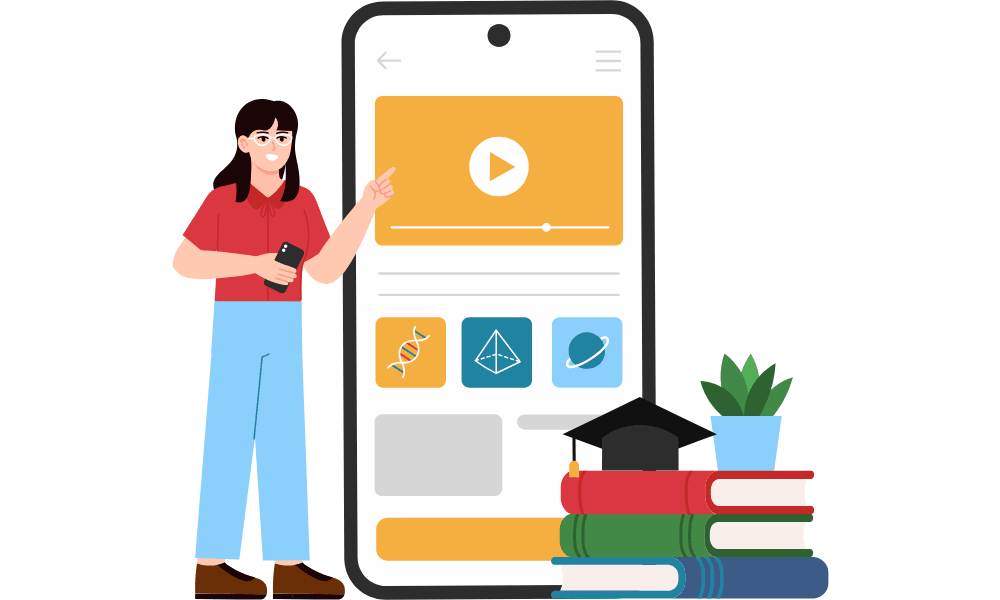

Today’s international school ecosystem includes various ed-tech tools that support life skills training.
Apps and programs like:
- Classcraft – for gamified behavioral learning
- Mindfulness for Students – for stress relief and emotional control
- Google Workspace – for collaboration and time management
- Flipgrid – for communication and video reflection
Using these platforms, students can participate in guided self-development activities while also learning how to use modern tools efficiently—a hard skill that pairs well with life skills training.
The Role of Teachers and Parents in Life Skills Training:


While schools provide the environment, the role of teachers and parents is equally important. Educators can model behaviors like patience, conflict resolution, and leadership during classroom interactions.
Parents can reinforce the same values at home by assigning chores, encouraging open communication, and setting screen-time boundaries.
Some collaborative life skills activities include:
- Family meal planning
- Home budgeting tasks
- Joint parent-student presentations or TED-style talks
This school-home partnership creates consistency and better reinforcement of these vital abilities.
Frequently Asked Questions (FAQs)
Ques 1. Why are life skills important for international school students?
Ans. Life skills help students in international schools thrive in diverse, global settings by improving their adaptability, leadership, and social skills.
Ques 2. How do life skills activities differ from regular classroom learning?
Ans. Unlike academic lessons, life skills activities focus on real-life scenarios, interactive tasks, and behavioral growth rather than just theoretical knowledge.
Ques 3. How do life skills activities improve communication skills?
Ans. They encourage public speaking, group discussion, and listening exercises, which help students express themselves clearly and confidently.
Ques 4. Do life skills help in reducing classroom stress?
Ans. Yes. Activities like meditation, reflection, and time management help students handle pressure and reduce anxiety.
Ques 5. What is the role of teachers in life skills training?
Ans. Teachers act as facilitators, mentors, and role models during life skills activities, encouraging student growth through guidance.



